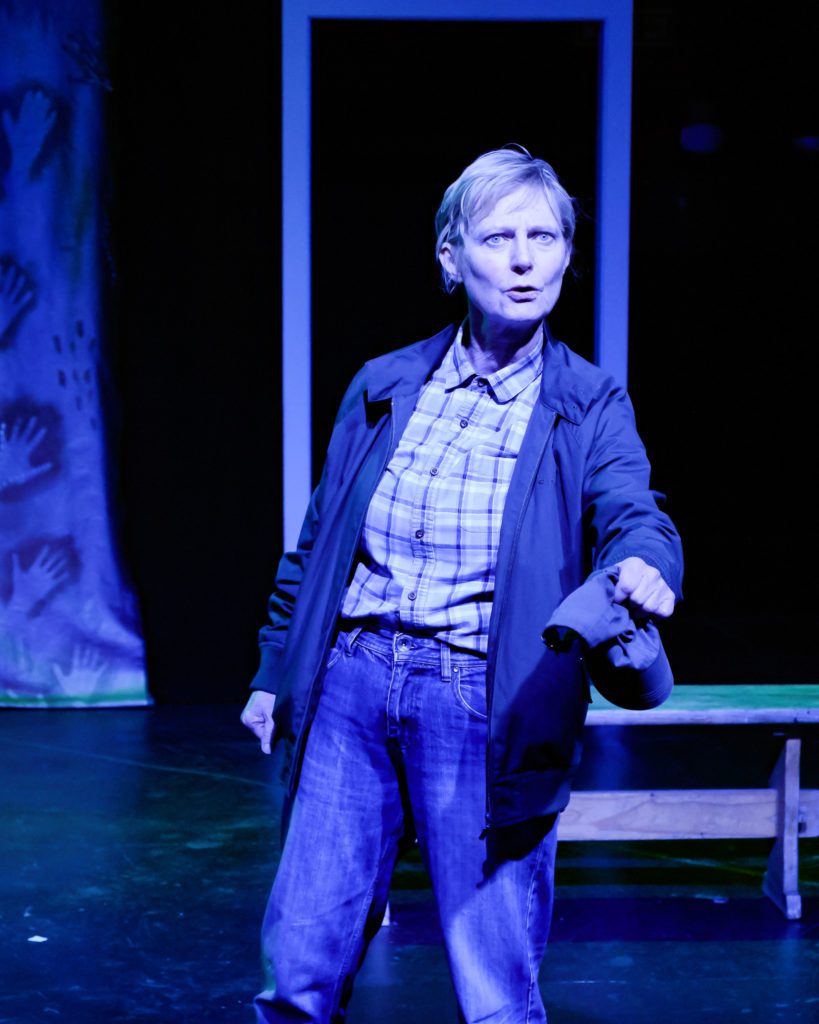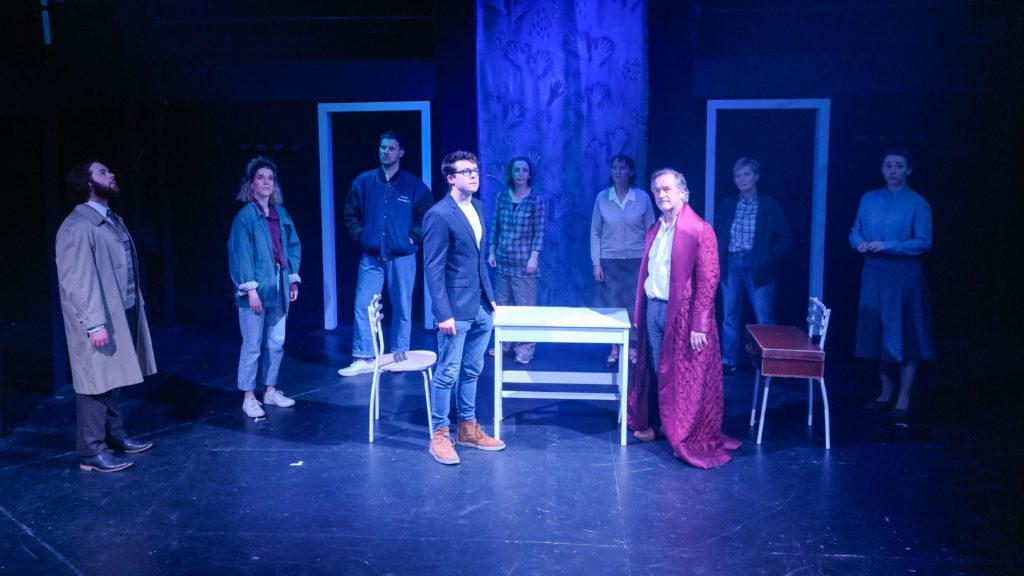
YORK director and designer Maggie Smales is reviving a theatre company name from her Seventies’ student days to present Andrew Bovell’s When The Rain Stops Falling, a multi-layered mystery spread across 80 years and four generations of one family in England and Australia.
Smales chose this apocalyptic story of betrayal, abandonment and destruction for Rigmarole Theatre Company’s debut venture because it addresses “the most important question of our times”: Are we prepared to pass on the damage from the past to our children?
Ahead of this Yorkshire premiere opening at 41 Monkgate, tomorrow (November 14), Maggie answers Charles Hutchinson’s questions.
What prompted you to set up a theatre company now, Maggie?
“We’re lucky to have a lot of heritage theatre and musicals here in York. While that is wonderful, for both performers and audiences, I feel it’s important that there is contemporary work on offer.
“There’s such a lot of great work that offers a more direct connection to our lives today. TV dramas are often fantastic, but I don’t think you can beat live drama where the audience is in the room with the events playing out before them.”
Why make the link with your student past by reviving the name Rigmarole?
“A bit frivolous, I suppose, but it is somewhat in the spirit of sustainability and re-use, which are part of Rigmarole’s ideals.
“Also, I’m constantly reminded while I work, whether directing or acting, that I’m still a student, and long may that last!
Why did you choose this play for your launch production?
“Taking on a directing task is a large job, so when I take it on, it has to be for a text or project that matters to me.
“This play deals with the most pressing question of our times. Can we change to save ourselves? A question that is played out through the narratives of characters in the play and set in the context of a climate that’s changing and threatening our very existence.
“That sounds heavy, but like other great plays, it just uses great storytelling. I was completely blown away by it.
“Furthermore, it’s a play that offers fantastic opportunities for actors. It’s beautifully crafted and has a deliciously poetic text. As a director, it has a canvas that spans the globe and 80 years of time, so it offers the fantastic challenge of realising it all within a simple black box.”

Where did you come across this play? Have you seen it?
“I haven’t seen it, but I read it before seeing Andrew Bovell’s other well-known piece, Things I Know To Be True, which he wrote for Frantic Assembly.
“His adaptation of The Secret River by Kate Grenville was recently at the Edinburgh Festival and at the National Theatre. I went to see it and was captivated by the way he uses personal narrative to convey the story of a nation and the crimes at the very heart of its growth.”
What resonates most with you about this play?
“Something that has emerged as an increasingly important feature is that of legacy and inheritance: that we live among the presence of our ancestors but also with them inside our hearts. This is something maybe the Australian aborigines understand much better than us.”
What do you read into the title?
“With the weather we’ve been having lately it’s become a bit of a sore point really! Or spookily prophetic.
“Our story as humans is of carrying on, of finding a way forward and sometimes of bearing the burden of our own and others’ crimes. The final year of the play is set at the brink of our possible extinction and leaves us wondering if we always will ‘carry on’.”
Do you believe we can change, as Bovell’s play calls on us to do?
“I don’t think we do change. I think it is more in our DNA to ‘carry on’ and adapt our behaviour to suit the demands around us as we find them.
“Our current crisis shows that some of us are more prepared to adapt sooner rather than later. Put differently, there are various types of self-interest at work in humankind, but I’m fairly optimistic because there’s a lot of goodness in most people.”
Have you had any discussions with Andrew Bovell?
“We’ve been in touch through his agent and received a fantastic and insightful reply regarding the recent development banning the ascents of Uluru. Such a climb is featured in the play but why a ‘fair-skinned Englishman’ went there in search of his father is something you’d have to come and find out!
“The play has been performed all around the world but this its first appearance in Yorkshire and he wished us good luck.
“Bovell uses Australian culture, Greek myth, French philosophy and meteorological events in history to create a powerful allegory, which can be appreciated as both high opera and as accessible soap opera.”
And finally, why should we see When The Rain Stops Falling?
“If you like to be moved by what you see, if you like to see a mystery unfold as the puzzle pieces come together, if you like a powerful story that has something to say about who we are and where we are going, this is one to see.”
Rigmarole Theatre Company presents When the Rain Stops Falling, John Cooper Studio, 41 Monkgate, York, November 14 to 16, 7.30pm plus 2.30pm Saturday matinee. Box office: 01904 623568, yorktheatreroyal.co.uk or from the Theatre Royal box office in person.
